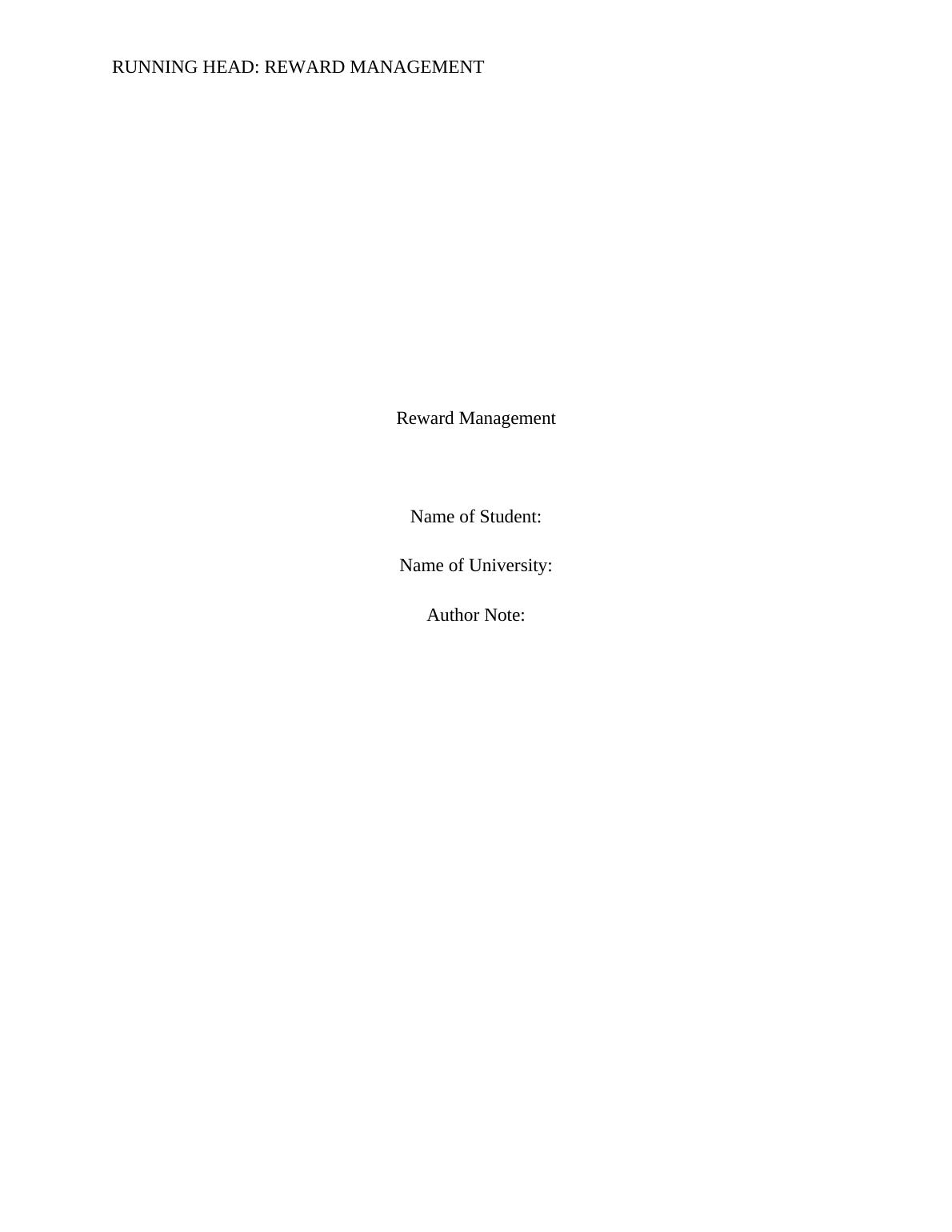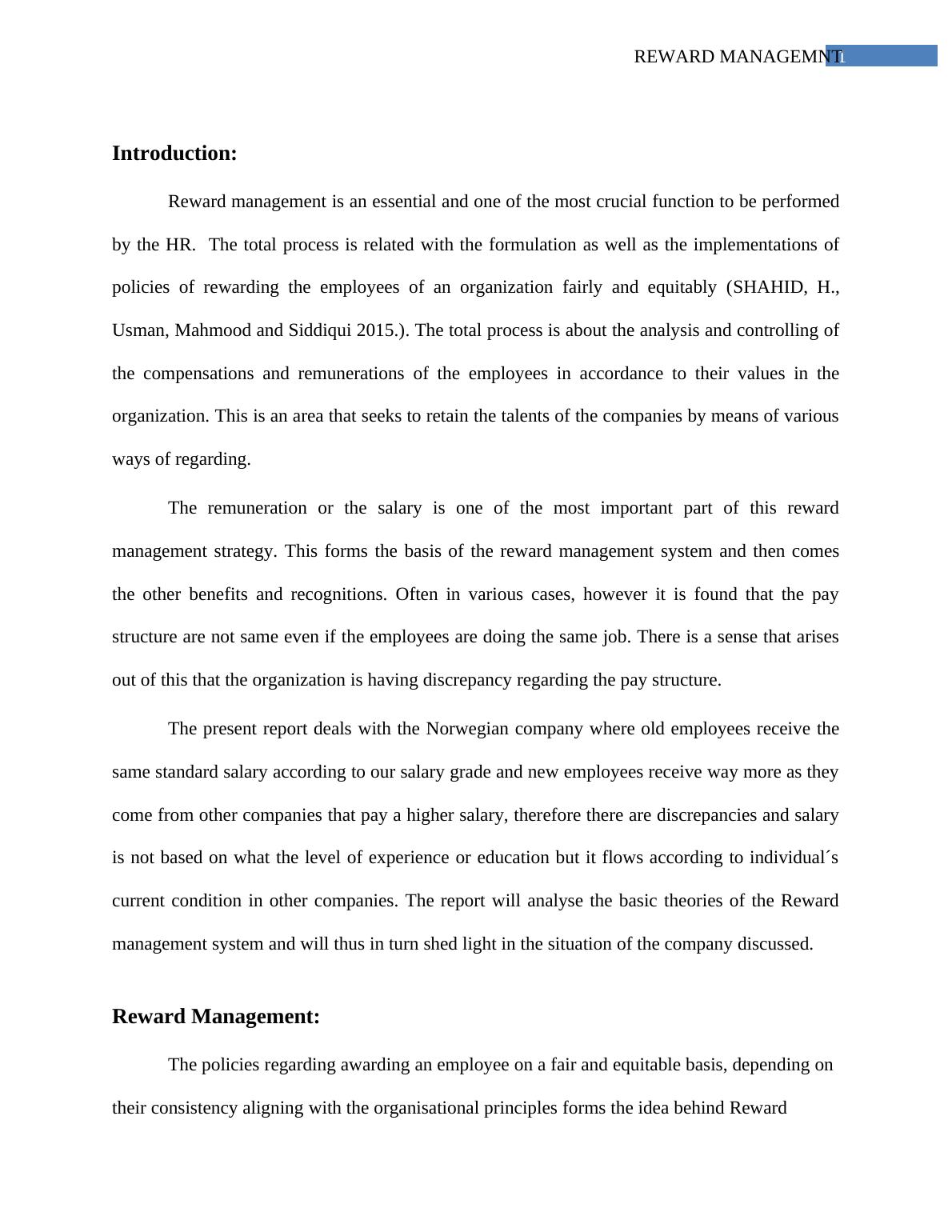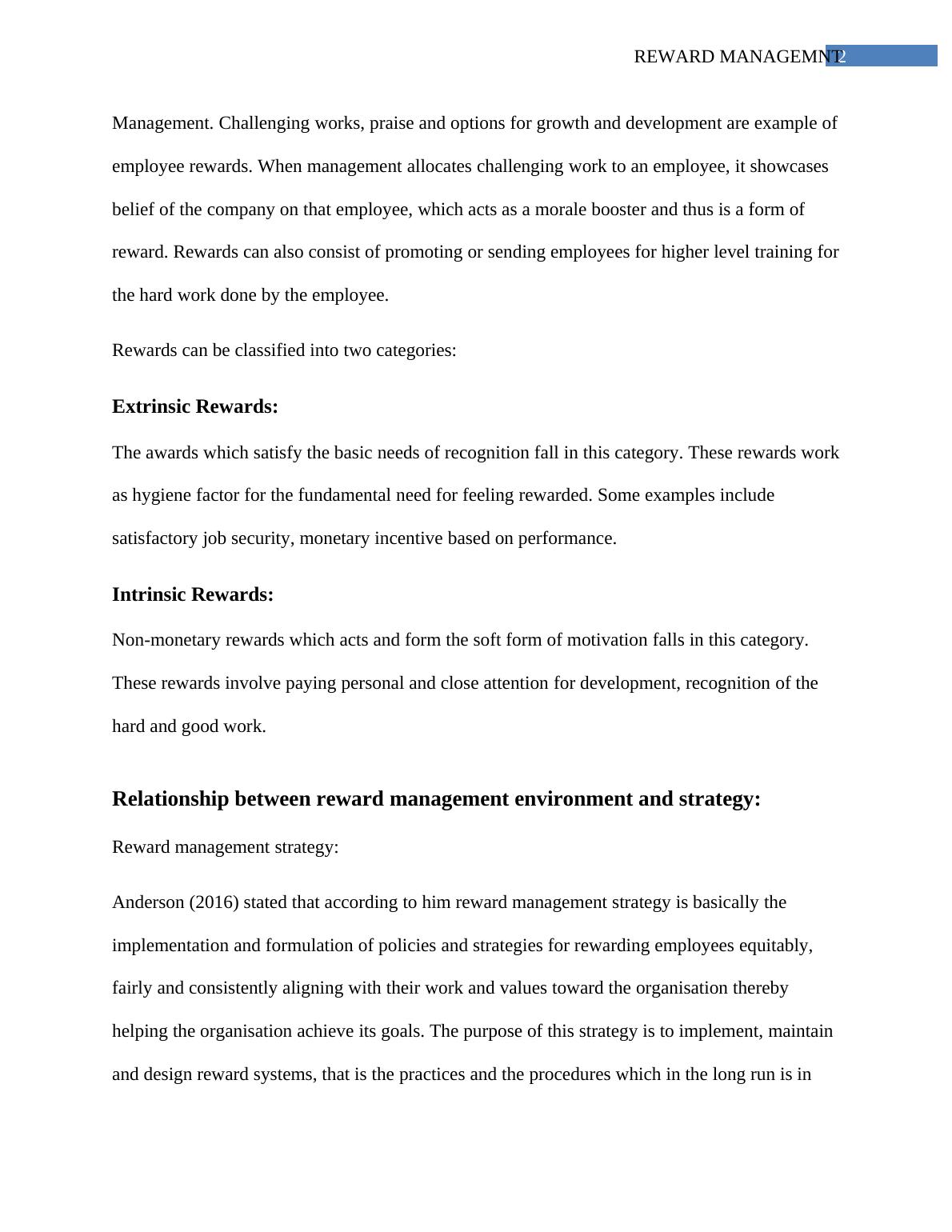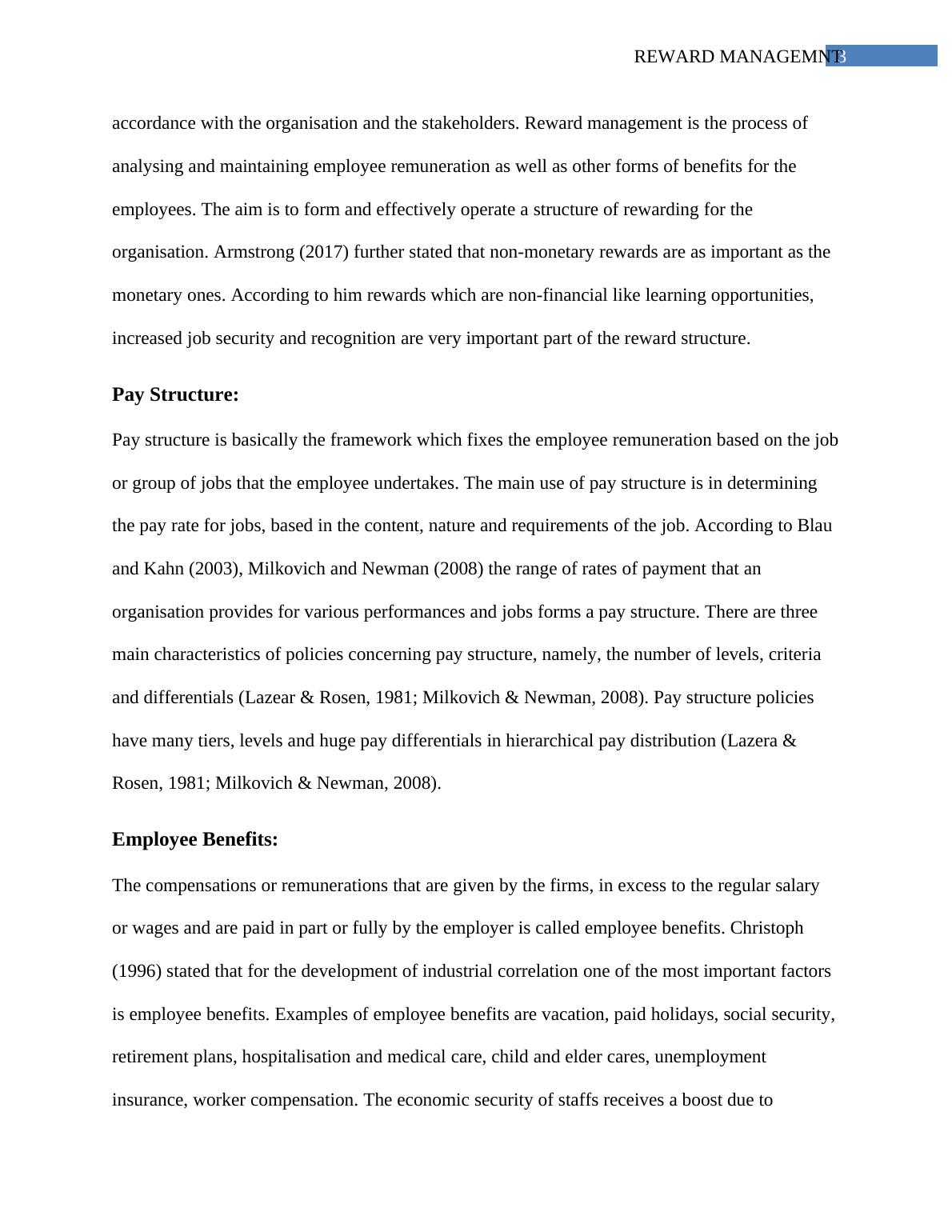THE REWARD MANAGEMENT
Produce a 3000 word written report analyzing the differences in pay between employees in a chosen area of employment, considering environmental change, organizational strategy, reward strategy, and equal opportunities policy.
14 Pages3775 Words17 Views
Added on 2022-09-06
THE REWARD MANAGEMENT
Produce a 3000 word written report analyzing the differences in pay between employees in a chosen area of employment, considering environmental change, organizational strategy, reward strategy, and equal opportunities policy.
Added on 2022-09-06
ShareRelated Documents
End of preview
Want to access all the pages? Upload your documents or become a member.
Performance Compensation and Management in Tesla
|17
|4136
|381
Performance and Reward Management
|14
|731
|66
Managing Human Resources: Essay
|12
|3210
|62
Monetary Rewards Effect Retention (Doc)
|8
|1962
|224
[Assignment] People Management and Reward System
|8
|2047
|27
Evaluation of Human Resource Management of Sainsbury's Strategy
|11
|3593
|487




